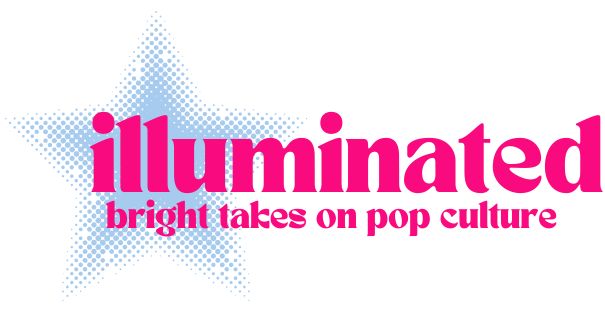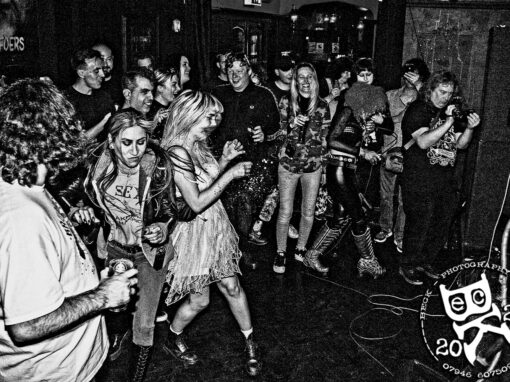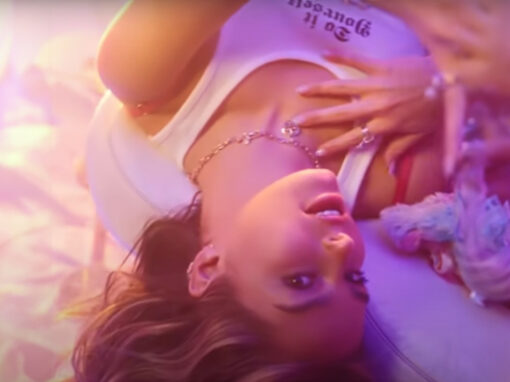Image by Roger Starnes Sr on Unsplash
Ahead of Ethel Cain’s new album ‘Willoughby Tucker I Will Always Love You’ , written around the ‘Preachers Daughter’ track House in Nebraska we explain the story behind the song and what it might mean for the new album. The first single on the album ‘Nettles’ has now been released.
Who Is Ethel Cain?
Ethel Cain is a pseudonym for musician/lyricist/producer Hayden Silas Anhedönia and a character she created. The character Ethel Cain grew up in a strict and religious household, in the fictional southern town of Shady Grove. She has a troubled and traumatic life filled with abuse, whether that be from substances, relationships, religion or her family. You can read more about the character Ethel Cain here: A track-by-track breakdown of Ethel Cain album ‘Preacher’s Daughter’
(In this article we refer to Ethel Cain the character)
Who is Willoughby Tucker?
As of yet Willoughby Tucker is still a bit of an enigma. We know he was Ethel’s first love, and the only positive romantic connection she mentions. He is no longer in her life and has been hinted to have died in a tornado by Cain (artist) herself. We do not know whether this is true or not yet, but we are sure to find out more about him on the new album.
Song Overview
This song is the third track on ‘Preachers Daughter’ but the events take place prior to the events that unfold on the album, during (or rather the end of) her relationship with her first love Willoughby Tucker. It is notably over seven minutes long – being the longest track on the album, with a narrative full of despair and ending instrumental that feels like a punch in the gut.
Lyric Breakdown
Labored breaths and bed sores
Sing it to me all day long
When the aching sound of silence
Used to be our favorite song
You and me against the world
You were my man and I your girl
We had nothing except each other
You were my whole world
But then the day came
And you were up and gone
The melancholic opening sets the tone for what expands into a painful yearning song overall. It sets the scene of the character Ethel and Willoughby being in love, but alluding it now has decayed and suffered – note the past tense. The line “you and me against the world” solidifies their unbreakable bond and the idea they will always look out for each other.
Chorus
And I still call home that house in Nebraska
Where we found each other on a dirty mattress on the second floor
Where the world was empty
Save you and I
Where you came and I laughed, and you left, and I cried
Where you told me even if we died tonight, that I’d die yours
Here, Ethel is reminiscing about a desolate house she used to see and imagine was her own, with Willoughby. She holds this memory dear, and thinks of how idyllic both the relationship and being in the house felt to her. The house isn’t strictly physical, it is a place she goes in her mind to seek comfort from her troubled life (trust me this is barely the tip of the iceberg when it comes to Ethel Cain lore). The house isn’t even in Nebraska, it is a representation of escape the characters crave, and an imagined safe house they can run away to in an ideal life.
Verse
These dirt roads are empty
The ones we paved ourselves
Your mama calls me sometimes
To see if I’m doing well
And I lie to her and say that I’m doing fine
When really I’d kill myself to hold you one more time
And it hurts to miss you, but it’s worse to know
That I’m the reason you won’t come home
The first line of the verse displays how the relationship they had with each other is now gone. However, the next line implies there was no bad blood as his mother still checks in with her. Ethel painfully sings “but really I’d kill myself to hold you one more time” , at this point we don’t know why she can’t be with him – only that the longing is all consuming that she’d be willing to die to be with him again, even for a small amount of time. The following
“And it hurts to miss you, but it’s worse to know that I’m the reason you won’t come home” demonstrates this profound sense of loss and deep struggle to move on. The usage of “won’t” rather suggests she believes it was a choice rather than inability at this point.
(Chorus)
You know I still wait at the edge of town
Praying straight to God that maybe you’ll come back around
I cry every day, and the bottles make it worse
‘Cause you were the only one I was never scared to tell I hurt
And I found photographs of our school on the day we met
I thought that you were so beautiful, it was love, I guess
And you might never come back home, and I may never sleep at night
But God, I just hope you’re doing fine out there, I just pray that you’re alright
This verse of the song shows the peak of her longing, she is turning to faith – of which she has a complex relationship explored further within the album. The crying every day and blatant turn to alcohol shows she is not coping with this loss, paired with her reminiscing over the entire time of them knowing each other. “It was love I guess” shows how she may not have realised it at the time but in retrospect she understands the depth of her feelings. Her not knowing what happened to him is heavily suggested and it tortures her so much so its all she can think about when she tries to sleep.
And I feel so alone
And I feel so alone out here
I feel so alone
And I feel so alone out here
And I feel so alone without you, I’m so alone out here
I feel so alone, I feel so alone
I’m so alone out here without you, baby
The repeated “I feel so alone” displays how Willoughby was the closest relationship Ethel had with anyone. They are delivered mournfully and quietly, with her voice sounding tearful as she sings the final lyrics of the song.
Instrumental
Now if all that isn’t emotional enough before the song closes we’re hit with the same melodic piano that quickly transitions into a guitar solo, that feels like it will rip out your soul.
The end of the song reinforces the pain and torment she has been facing through loss and unanswered questions, which fans can expect to be answered in the new album.
For more music stories here: Music – Illuminated




